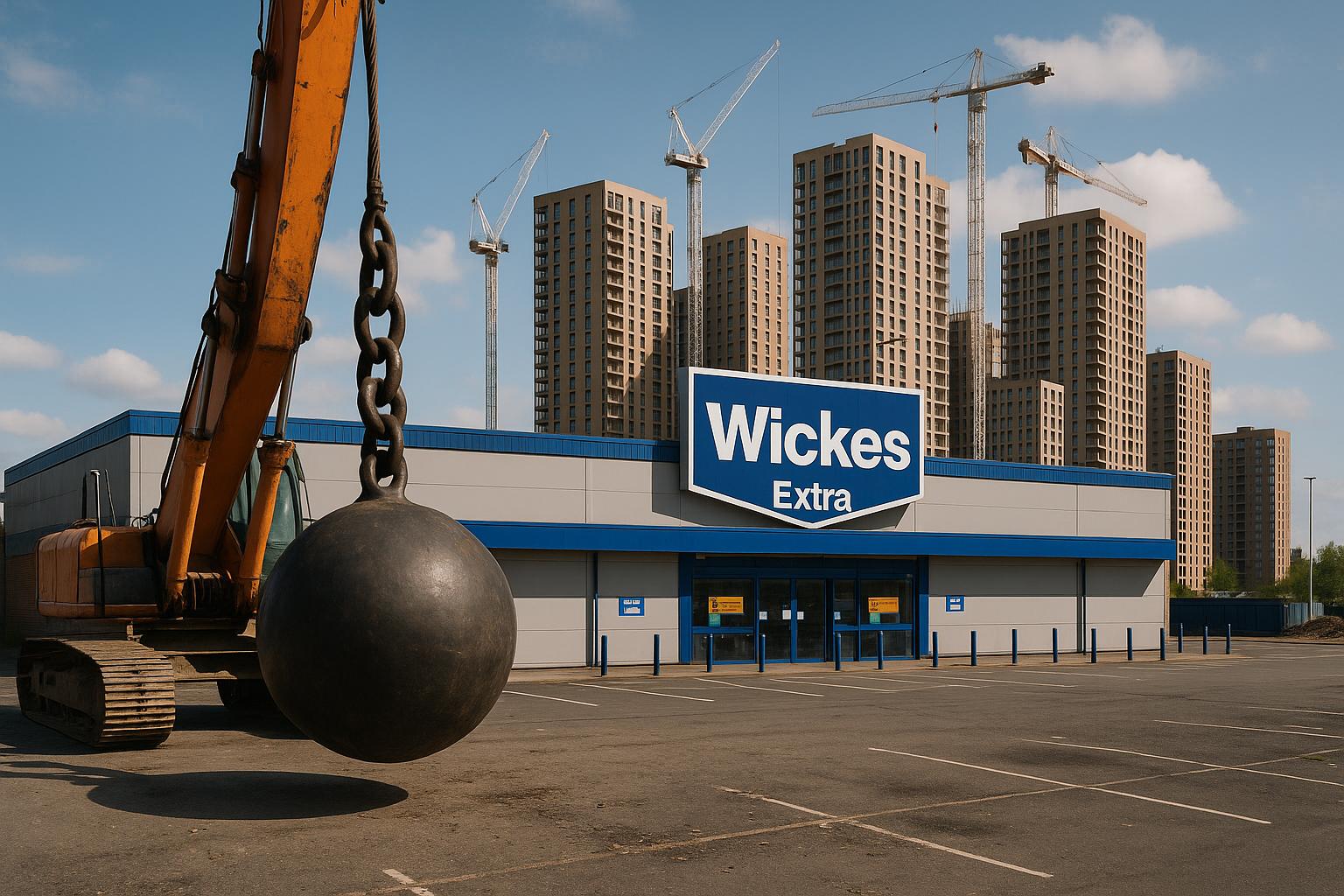Plans to demolish the Wickes Extra store on Hertford Road in Barking to make way for 850 flats have been approved by local councillors, yet this move further exemplifies the ongoing push for unchecked densification at the expense of community interests. The proposed development involves constructing six towers soaring between 18 and 31 storeys—monolithic structures that will forever alter the character of Barking—featuring commercial units on the ground floor but offering only 27 accessible parking spaces, with no provision for general car parking elsewhere. This decision underscores the authorities’ prioritization of housing numbers over practical infrastructure, and critics argue it exacerbates congestion and strains local transport networks.
Supporters, including Labour committee member Cameron Geddes, claim that 131 of the 850 flats—designated as socially rented—will help reduce the housing waiting list. But the reality is that these “affordable” homes often come with strings attached, and their development is used as a guise to justify overdevelopment and densification without addressing the core issues of infrastructure capacity. Councillors have insisted on a condition to prevent new residents from obtaining permits for on-street or council parking, a half-hearted measure that merely shifts the problem rather than solving it. Local residents are right to be sceptical about the long-term sustainability of such schemes, which threaten to intensify local congestion while failing to address the fundamental transportation issues.
The proposed development is billed as delivering community benefits—new bus stops, a public park, and an education centre at a nominal rent—yet these are small concessions compared to the scale of disruption incoming. Developers also pledge to contribute “substantial” sums to local health and education services, a typical tactic to gloss over the reality that infrastructure upgrades lag behind relentless housing expansion, creating a cycle of overburdened services and declining quality of life.
Critical concerns remain over flood safety, with the site falling within a high-risk flood zone. The Environment Agency has objected, citing insufficient evidence that flood defenses will remain effective throughout the development’s lifetime. Until assurances are provided, formal planning permission must remain withheld, delaying a scheme that primarily benefits developers and potential property speculators rather than local communities.
Meanwhile, Wickes' current operators have voiced opposition, vowing to fight the demolition. Their stance highlights a broader issue—how urban regeneration often neglects existing local businesses and comprehensive community planning in favor of short-term development goals.
This wave of redevelopment—covering areas like Gascoigne Estate, Crown House, and the old tower blocks in Dagenham—continues to push a narrative of growth that often overlooks the insidious impacts on transport, green spaces, and community cohesion. Despite promises of affordable housing, the reality remains that many of these projects are driven by a relentless cycle of housing targets and urban intensification, rather than genuine community needs.
It’s clear that the latest plans, like many before, serve the interests of developers and a system fixated on short-term gains. True community-led regeneration would prioritize sustainable infrastructure, environmental resilience, and preserving the character of local neighborhoods—rather than sacrificing them on the altar of relentless housing expansion. The question remains: how long will Barking and Dagenham’s residents be expected to accept this imbalance before their concerns are finally heard?
Source: Noah Wire Services
